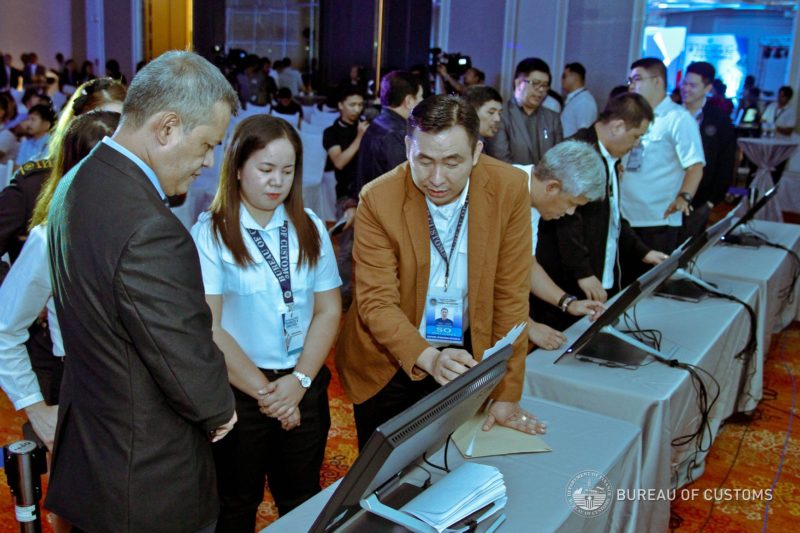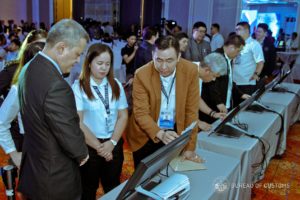

The Bureau of Customs (BOC) is aiming to complete review of the National Value Verification System (NVVS) and submit its recommendation to the House of Representatives (HOR) before the end of January. The review was earlier requested by the Lower House.
“The review process of the NVVS is not yet closed. We’re aiming to finish the same siguro (maybe) before the month ends and submit our recommendation and reply to the request of Congress,” BOC assistant commissioner and spokesperson Atty. Vincent Philip Maronilla told PortCalls in a recent chance interview.
Maronilla admitted flaws have been found in the system, and that BOC’s Import Assessment Service (IAS) is already looking into them.
BOC late last year started the review of its NVVS after AAMBIS-OWA Party List representative Sharon Garin, in an HOR Committee on Ways and Means hearing on December 9, 2019, motioned for BOC to suspend the system over issues raised by stakeholders and the possibility it may violate the World Trade Organization’s (WTO) methods of valuation.
Committee chair and Albay second district representative Joey Salceda, during the hearing, said: “Gusto lang namin magkaroon ng [We just want] conditions para hindi siya [to ensure NVVS is not] subject to internal abuse.”
Salceda clarified the suggestion to suspend the system is “not a judgment on the merits of the NVVS”, but that the committee just wants “to study whether we are not violating an international agreement.”
NVVS is an internal BOC system formally launched last June that may be accessed by customs assessment officers to verify whether the value declared by the importer is the price actually paid or payable for the goods when sold for export to the Philippines.
Value verification will be based on the previous importation, on similar and identical goods at the same period of importation, and on other methods of valuation available under Republic Act No. 10863, otherwise known as the Customs Modernization and Tariff Act.
However, since its implementation, the system has been the subject of complaints and concerns from stakeholders, including the Chamber of Customs Brokers, Inc. (CCBI) and Bureau of Customs Employees Association (BOCEA).
CCBI, in a letter to Customs Commissioner Rey Leonardo Guerrero dated November 12, 2019 cited instances of “non-acceptance of the proof of payment as evidence for shipments with higher NVVS compared to the declared value.
“There are many instances wherein shipments have been upgraded to match the NVVS value despite the submission of complete documents with proof of payments,” CCBI claimed.
BOCEA, in a statement, said they “strongly reject” the implementation of NVVS, claiming it is an anti-trade facilitation measure as it “forces” customs officers “to adopt a valuation based on a database of previously utilized values with a per-kilogram unit value.”
BOCEA said this is “backward and reverts to a valuations system almost similar to the published value under the home consumption value or the export valuation,” which the group said is “a step back to the notional dark ages of customs valuation.”
Maronilla had earlier clarified that there was no order instructing customs appraisers to favor the value in the NVVS over the transaction value. He explained that values generated in the agency’s NVVS were only for reference, not a substitute for the transaction value.
READ: BOC: NVVS value a ‘reference’, not replacement for transaction value
CCBI, in a statement on November 18, 2019, said Maronilla, in a meeting with the chamber on November 13, suggested that the documents be forwarded to his office for assistance in cases where shipments had been upgraded to match the NVVS value despite the submission of complete documents with proof of payments.
Maronilla also told PortCalls that his office and the IAS office are open to and willing to conduct an executive session with customs brokers and importers having issues with customs appraisers and NVVS if they are afraid to formally file a complaint for fear of backlash from appraisers. – Roumina Pablo




